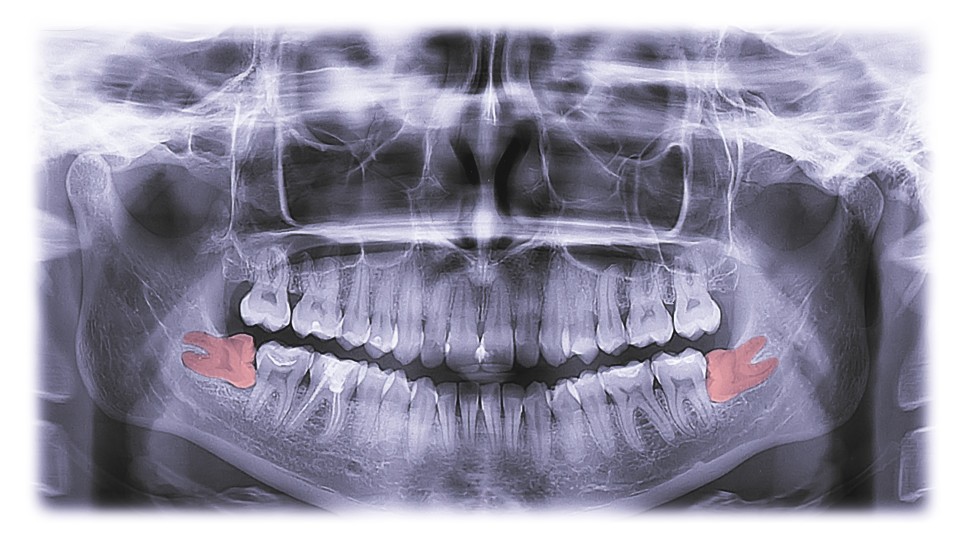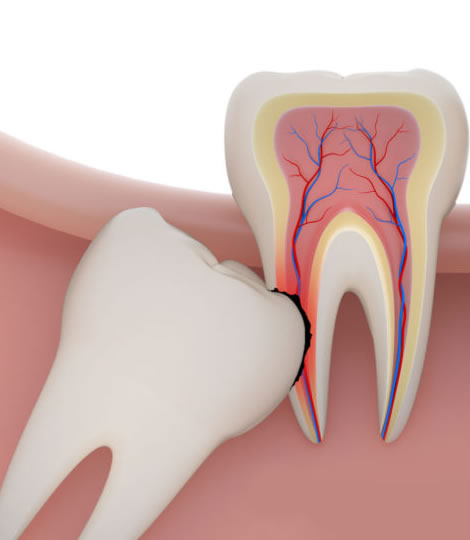Wisdom Teeth Removal Aspendale: Post-Procedure Care and Healing Tips
Wisdom Teeth Removal Aspendale: Post-Procedure Care and Healing Tips
Blog Article
Checking Out Various Sedation Options for a Comfortable Knowledge Pearly Whites Extraction Experience
When confronted with the possibility of having actually knowledge teeth drawn out, ensuring a pain-free and comfortable experience is extremely important. Using sedation throughout such treatments has actually become increasingly common to relieve anxiety and pain. With a variety of sedation choices readily available, from regional anesthesia to general anesthetic, each method provides varying degrees of leisure and discomfort control. Comprehending the distinctions in between these options and their viability for specific demands is crucial in making sure a smooth and comfortable wisdom teeth extraction procedure. wisdom teeth removal aspendale.
Regional Anesthetic
Regional anesthetic is a typically utilized approach for numbing particular areas of the mouth during knowledge teeth extraction treatments. By administering an anesthetic, such as lidocaine, a dental expert can guarantee that the individual continues to be comfy and pain-free throughout the removal procedure. Neighborhood anesthetic jobs by momentarily blocking the nerves in the mouth, preventing them from sending out pain signals to the brain. This allows the dental practitioner to carry out the extraction without creating any kind of pain to the individual.
One of the primary advantages of regional anesthesia is its targeted numbing effect, which implies that only the certain area being treated is influenced. This local method minimizes the risk of systemic side results and enables a quicker recuperation post-procedure. Additionally, regional anesthesia is thought about to be a risk-free and regular technique in dentistry, with very little threats included when provided by a trained specialist.
Laughing Gas
Nitrous oxide, frequently understood as chuckling gas, is a type of sedation usually utilized in dentistry to aid individuals relax during dental treatments. It is a secure and reliable technique that entails inhaling a mix of nitrous oxide and oxygen with a mask put over the nose. Among the vital benefits of nitrous oxide is its quick beginning of action, usually within minutes, providing almost immediate leisure for the patient. This sedation option permits the client to continue to be receptive and mindful throughout the procedure while really feeling secure and comfy.
Once the mask is eliminated, the effects of the gas put on off swiftly, enabling clients to resume their typical tasks without lingering sedative results. Nitrous oxide is ideal for people of all ages, making it a flexible sedation alternative for knowledge teeth removals and other oral treatments.
Oral Sedation
Oral sedation, a medicinal approach used in dental care, involves the management of sedative medications by mouth to generate a relaxed state during dental treatments. The medications suggested for oral sedation belong to a course of drugs called benzodiazepines, which have sedative, anxiolytic, and amnesic residential properties.
Among the main benefits of dental sedation is its simplicity of management. Unlike intravenous sedation, dental sedation does not need needles or injections, making it a much more comfortable option for individuals with a fear of needles. In addition, oral sedation is taken into consideration safe and effective when administered by experienced dental experts. It is critical for patients to adhere to pre-operative instructions given by their dentist, such as refraining from eating or drinking before the procedure to ensure the sedative medication functions as intended.
IV Sedation
Administered intravenously by trained physician, IV sedation is a powerful approach made use of to generate a controlled state of deep leisure and unfamiliarity during oral treatments. Unlike dental sedation, which can be unpredictable in its effects, IV sedation enables precise control over the level of sedation, making it a perfect choice for intricate treatments like wisdom teeth removals.
Throughout IV sedation, a sedative medication is provided straight right into the bloodstream with a capillary, permitting it to work rapidly and efficiently. This approach guarantees that the patient remains not aware and comfortable of the treatment while still keeping crucial features such as breathing and heart rate.
One of the main benefits of IV sedation is its capability to give a much deeper level of sedation contrasted to other techniques, making it particularly appropriate for patients with high levels of stress and anxiety or those undertaking substantial oral work (wisdom teeth removal aspendale). In addition, the impacts of IV sedation typically disappear progressively after the procedure, lowering the possibility of grogginess or remaining side results. On the whole, IV sedation uses a secure and why not check here effective choice for guaranteeing a comfortable and hassle-free experience throughout knowledge teeth extraction

General Anesthetic
Having talked about the benefits of IV sedation for knowledge teeth removal, the usage of general anesthesia gives a different option for patients needing a deeper level of unfamiliarity throughout oral procedures. General anesthetic causes a controlled state of unconsciousness, ensuring the person really feels no pain or discomfort during the extraction procedure. This method is especially beneficial for people with extreme dental stress and anxiety, complex medical needs, or those undergoing multiple extractions concurrently.
General anesthetic is carried out by a skilled anesthesiologist that closely checks the patient's vital indications throughout the procedure. It involves making use of intravenous medications or inhaled gases to generate a state of unconsciousness. While under basic anesthesia, the individual will not understand the surgical treatment, experience any kind of pain, or have any type of recollection of the treatment later.
Although basic anesthesia is secure when provided by certified specialists, it carries a somewhat greater risk compared to various other sedation choices - wisdom teeth removal aspendale. Patients taking into consideration general anesthesia for knowledge teeth removal need to discuss see here the potential dangers and benefits with their dentist or dental cosmetic surgeon to make an informed choice based upon their specific demands and case history

Final Thought
In verdict, different sedation options are available to ensure a comfortable knowledge teeth extraction experience. Regional anesthetic is typically made use of for numbing the details area, while nitrous oxide supplies leisure and pain relief. Oral sedation and IV sedation offer much deeper degrees of leisure, relying on the individual's requirements. General anesthesia can be utilized for much more complicated instances. It is essential to seek advice from your dental expert or dental specialist to figure out the most appropriate sedation alternative for your procedure.
Nitrous oxide is appropriate for people of all ages, making it a browse around this site versatile sedation option for knowledge teeth extractions and various other dental treatments.

Report this page